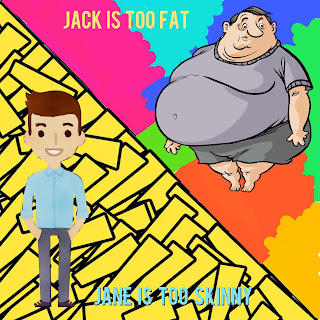 |
| Enough and Too Exercises |
In this episode we provide you with enough and too exercises. There are three different types of exercises: combining, completing, and rewriting sentences using enough or too. But, before the exercises, we provide you with some points about these two words.
Enough and too are a little bit confusing for beginners for two reasons. First, they have opposite meaning. Too is used to express that there is more of a thing or quality than is desirable or acceptable. Enough is used to indicate there is sufficient of a thing or quality. Secondly, they also have different position regarding the adjectives and adverbs. Enough is placed after an adjective or an adverb; too is placed before it.
Function of Enough and Too
Enough After Adjectives and Adverbs
- He didn’t get the job because he wasn’t old enough. (not ‘enough old’)
- We won’t be rich if we don’t work hard enough.
- She’s not old enough to work in the factory.
Enough Before Nouns
- I don’t have enough money to buy the car.
- We just have three eggs for a week. We don’t have enough eggs.
- Please put enough salt into the soup!
Enough Can Stand Alone
- I’ll lend you some money if you don’t have enough.
- “Do you need some more sugar?” “No, I have enough.”
Enough Followed By “For Something” Or “For Someone”
- I haven’t got enough money for the wedding party.
- He wasn’t good enough for the job.
- This shirt is big enough for my big brother.
Enough Followed By To Infinitive
- I don’t have enough money to get married. (not ‘for getting’)
- He wasn’t strong enough to do the job.
- She’s only thirteen. She’s not old enough to work in this factory.
- The weather wasn’t nice enough to go swimming.
Too Followed By An Adjective Or An Adverb
- I don’t like the soup. It’s too hot. ( adjective )
- Don’t work too hard! ( adverb )
Too + Adjective/Adverb Followed By For Someone/Something
- The soup is too hot for me.
- The weather is too cold for swimming.
- He’s too short for the job.
- He speaks too loudly for me.
Too + Adjective/Adverb Followed By To Infinitive
- That picture is too heavy to hang on the wall
- I had to carry my wallet in my hand. It was too big to put in my pocket.
- The water was too dirty to swim in.
- The thief drove his car too fast to catch.
More Examples of Enough and Too
- You won’t get rich if you don’t work smartly enough.
- You won’t get rich if you work too stupidly.
- I can’t marry her because she’s too young.
- I can’t marry her because she’s not old enough.
- I haven’t got enough money to buy the car.
- I am too poor to buy the car.
- The coffee is too hot for me.
- The coffee is hot enough for him.
- He’s not old enough to work in the factory.
- He’s too young to work in the factory.
- There isn’t enough food for the family to eat.
- There is too little food for the family to eat.
See active and passive voice exercises here.
Enough and Too Exercises
Exercise I Complete the sentences with enough or too!
- She’s … young to get married.
- Do you have … money to buy this motorbike?
- The coffee is … hot for me to drink.
- The girl is tall … to reach the baggage.
- Can you give … time to finish this project?
- The suitcase is ….heavy for the boy to lift.
- I am old ….to watch this movie.
- Don’t be …. shy. Please, speak up.
- I was not accepted to be a policeman because I am …. short.
- He’s old … to work here.
Exercise II Combine two sentences into one using too or enough.
- I couldn’t eat the food. It was too sour. (too)
- The boy can’t work here. He is not tall enough. (enough)
- Five people can’t live in this house. The house is too small. (too)
- I can’t walk to school. The school is too far. (too)
- He can’t finish this job alone. He is too lazy. (too)
Exercise III Rewrite Sentences Using Enough and Too
- I don’t have enough strength to knock him out. (too) ………………………………………
- She’s not old enough to get married this year. (too) …………………………………………….
- He’s not rich enough to buy the ranch. (too) ……………………………………………………..
- Is the room too hot for you? (enough) ………………………………………………………………
- The bed is too narrow for two of us. (enough) ……………………………………………….
- The child is too short to sit on that chair. (enough) ……………………………………..
- The village is too busy for me to live in. (enough) ……………………………………………….
- The room is too small for the party. (enough) ……………………………………………….
- I was too far to hear everything she said. (enough) ………………………………………
- The road was too busy for us to cross. (enough)
Answer
Exercise I
- She’s too young to get married.
- Do you have enough money to buy this motorbike?
- The coffee is too hot for me to drink.
- The girl is tall enough to reach the baggage.
- Can you give enough time to finish this project?
- The suitcase is too heavy for the boy to lift.
- I am old enough to watch this movie.
- Don’t be too shy. Please, speak up.
- I was not accepted to be a policeman because I am too short.
- He’s old enough to work here.
Exercise II
- The food was too sour for me to eat.
- The boy is not tall enough to work here.
- The house is too small for five people to live in.
- The school is too far for me to walk.
- He can’t finish this job alone. He is too lazy to finish this job alone.
Exercise III
- I am too weak to knock him out.
- She’s too young to get married this year.
- He’s too poor to buy the ranch.
- Is the room cool/cold enough for you?
- The bed is not wide enough for two of us.
- The child is too short to sit on that chair. The child is not tall enough to sit on that chair.
- The village is too busy for me to live in. The village is not quiet enough for me to live in.
- The room is not large enough for the party.
- I wasn’t close enough to hear everything she said.
- The road wasn’t quiet enough for us to cross.
Other Exercises


Leave a Reply